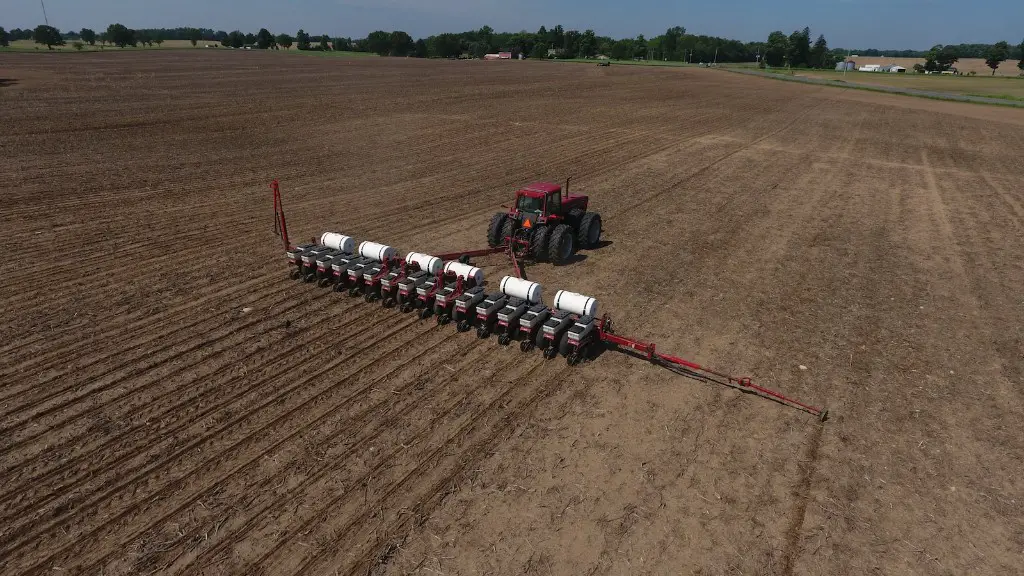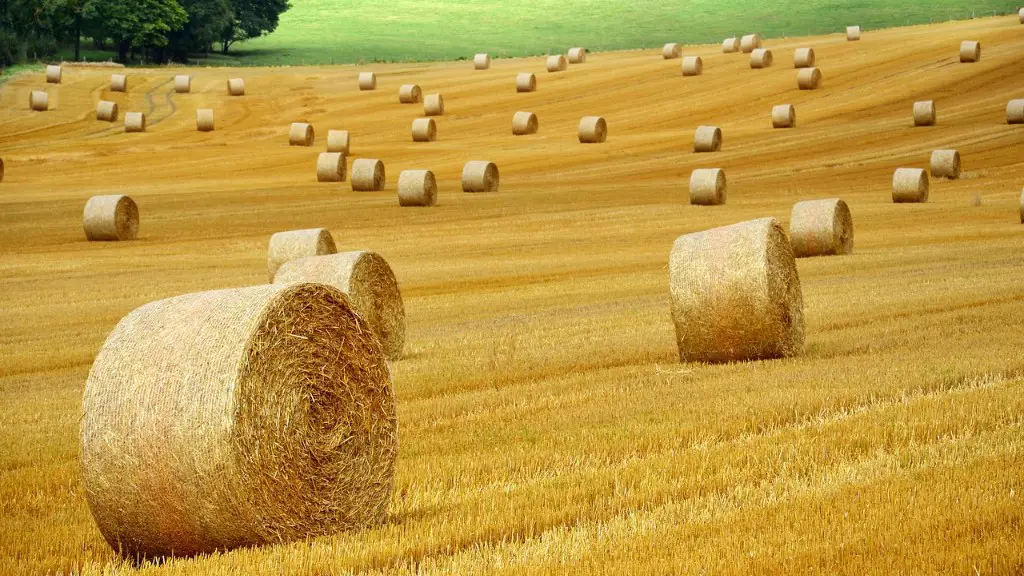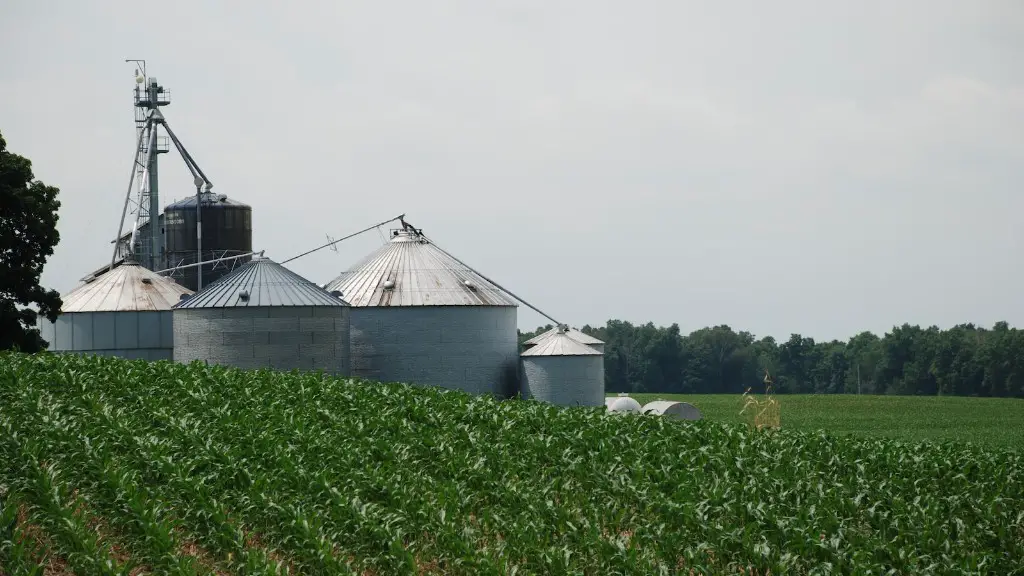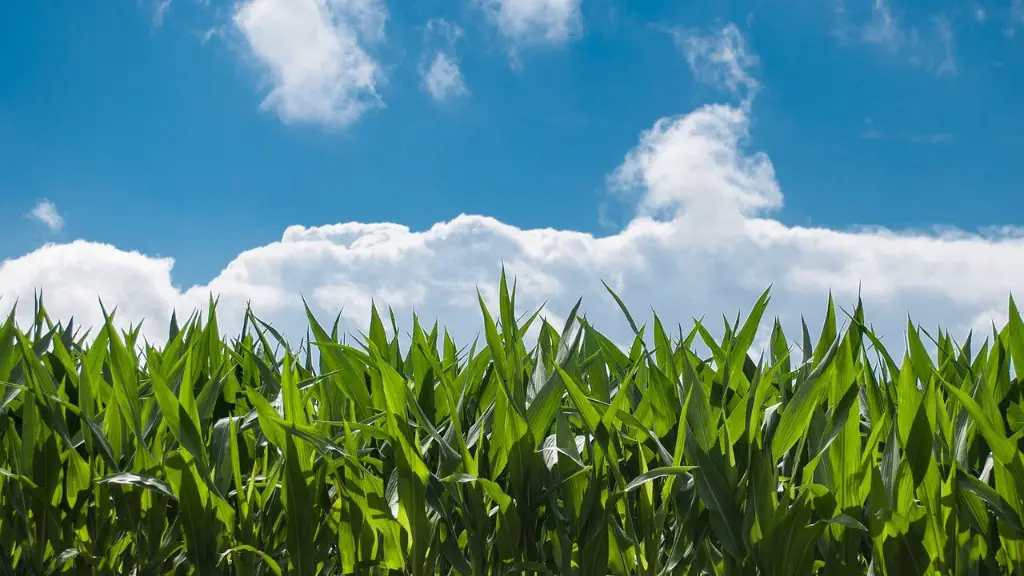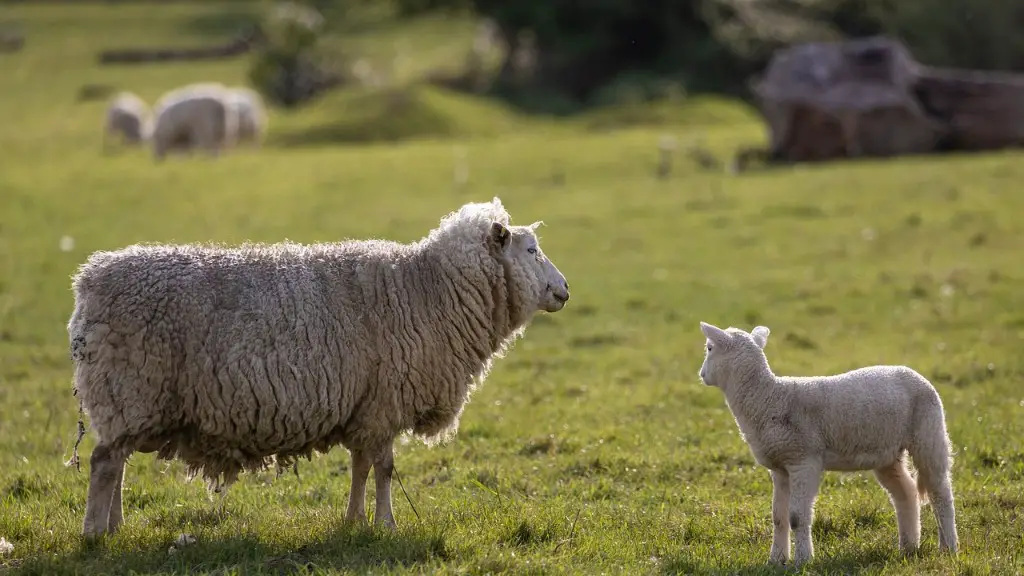Agriculture allowed for the domestication of plants and animals, which led to the development of civilizations. Agriculture allowed for the growth of cities and the rise of civilizations. Agriculture allowed people to settle in one place and develop civilizations.
Agriculture was an important invention because it allowed for the domestication of plants and animals, which led to the development of civilizations. Agriculture allowed for the growth of cities and the creation of surplus food, which allowed for the development of trade and commerce. Agriculture also allowed for the growth of civilizations by providing food and shelter for people.
What is the most important agriculture invention?
A tractor is an essential piece of equipment on any farm. These machines help farmers increase productivity by allowing them to work larger farms more efficiently. Tractors can be used for a variety of tasks such as plowing, tilling, planting, and harvesting.
Agriculture plays a vital role in society and the economy. It provides food for people to eat, raw materials for products, and jobs for people to do. It also helps to build strong economies through trade.
Was agriculture an invention
Agriculture is one of the most important inventions of humankind. It allowed for the domestication of plants and animals, which led to the development of civilizations. Agriculture began between 7,000 and 10,000 years ago, during the Neolithic era, or the New Stone Age. There were eight Neolithic crops: emmer wheat, einkorn wheat, peas, lentils, bitter vetch, hulled barley, chickpeas, and flax. The Neolithic era ended with the development of metal tools.
Farming has had a profound impact on human society, both in terms of the food we eat and the way we live our lives. Agriculture has allowed us to increase the yield of food plants, so that we can have food available year-round. Animals have been domesticated to provide us with meat, and with agriculture, people have been able to settle down, so that they no longer need to carry all their possessions with them.
What are 3 reasons why agriculture is important?
Agriculture is critical for the survival of humans and the planet. Here are 10 reasons why agriculture is important:
1) It’s the main source of raw materials: Agriculture is the primary source of raw materials for industries such as textile, pharmaceutical, and food and beverage.
2) It’s important to international trade: Agriculture is a key sector in international trade, with many countries relying on exports of agricultural products to earn revenue.
3) It plays a big role in a nation’s revenue: Agriculture is a major contributor to a country’s GDP, with the sector often accounting for a significant portion of a nation’s earnings.
4) It provides employment: Agriculture is a major source of employment, with millions of people around the world working in the sector.
5) It’s crucial to a country’s development: Agriculture is essential for the development of a country, as it provides the food and raw materials needed for growth.
6) It can help heal the environment: Agriculture can be used to help heal the environment, as it can help to restore degraded landscapes and improve soil health.
7) It goes hand-in-hand with war: War and conflict often lead to the displacement of people, which
Agriculture is a critical sector for reducing poverty, raising incomes, and improving food security for the majority of the world’s poor. The World Bank Group is a leading financier of agriculture, with a strong focus on supporting smallholder farmers and rural communities. We are committed to helping our partners increase agricultural productivity, improve nutrition and food security, and build more resilient farming systems.
How did agriculture change human society?
More abundant food supplies could support denser populations, and farming tied people to their land. Small settlements grew into towns, and towns grew into cities. Agriculture produced enough food that people became free to pursue interests other than worrying about what they were going to eat that day. This allowed for the development of art, literature, and science.
Importance of Agriculture: The Present era of farming contains dairy, fruit, forestry, poultry beekeeping and arbitrary etc However, it could be referred to as promotion, processing, marketing, and distribution of crops and livestock products.
Agriculture is the most important sector of the Indian economy. It is the principal source of livelihood for about two-thirds of India’s 1.1 billion people. It contributes about 17% to the country’s GDP. The allied activities such as livestock, poultry, and fisheries also contribute to the Indian economy.
Agriculture is not only important for the Indian economy but is also a critical sector in terms of employment. It is estimated that nearly 54% of the workforce is engaged in agriculture and allied activities.
Despite the importance of agriculture, the sector is plagued by a number of problems. The sector is heavily dependent on the monsoons, which are often erratic. This leads to a lot of uncertainty in production and income. In addition, the sector is also beset by a number of structural problems such as small and fragmented landholdings, lack of irrigation, and dependence on manual labor.
The government has been trying to address these problems through a number
What is the positive impact of agriculture
While the negative impacts of agriculture on the environment are serious, there are also some positive impacts that farmers can have on the environment. For instance, agriculture can help trap greenhouse gases within crops and soils, or mitigate flood risks through the adoption of certain farming practices. In addition, farmlands can provide important habitat for wildlife. By working together, farmers and conservationists can help protect and improve the environment.
Agriculture has brought about important changes in human life. For one, it has allowed us to settle down in one place instead of leading a nomadic life. This has allowed us to grow our own food, which has been a major source of sustenance for us. Additionally, it has also allowed us to develop new skills and knowledge about farming, which has further helped us to improve our livelihoods.
What is the importance of agriculture to the society?
Agriculture is a vital part of a country’s economy as it provides food and raw materials while also giving job opportunities to a large section of the population. A healthy agricultural sector is crucial for the overall health of an economy and should be supported accordingly.
The machines used during the Industrial Revolution allowed for mass production of goods and increased efficiency in many industries. This also applied to agriculture, where new machines were invented to help with various tasks. Reapers and threshers were two such machines that greatly helped with the harvesting and processing of grains. The former allowed for a much larger volume of grain to be harvested, while the latter made sure that the grains would fall from the stalks and be separated from the chaff, thus decreasing waste. The spread of railroads and trains also played a role in making farming more profitable during the Industrial Revolution. This was because it allowed for the transport of agricultural goods to markets much faster and easier than before.
What are 3 benefits of the agricultural revolution
There are a few reasons why the development of agriculture is called a revolution. First, agriculture has caused radical changes in human society throughout history. They resulted in the invention of the first cities, allowed for industrialization, and caused the human population to grow massively. Second, agriculture has had a profound impact on the environment. It has led to deforestation, soil erosion, and the loss of biodiversity. Third, agriculture has had a major impact on the economy. It has created new jobs and industries, and it has helped to feed the world’s growing population.
In the past, irrigation systems were manually operated and required a lot of labor. Now, automated systems have made irrigation much more efficient and easy to manage. These systems use sensors to monitor soil moisture levels and then deliver water accordingly. This not only saves water, but also reduces the need for farmers to manually water their crops. Automated systems have also made it possible to irrigate large areas of land more evenly and accurately. This has led to increased yields and better quality crops.
How did the agricultural revolution change the world?
The agricultural revolution was a turning point in human history. It led to a change in the way we live and interact with the natural world. The agricultural revolution had a variety of consequences for humans. It has been linked to everything from societal inequality—a result of humans’ increased dependence on the land and fears of scarcity—to a decline in nutrition and a rise in infectious diseases contracted from domesticated animals. The agricultural revolution was a major step in human development, but it also had some negative consequences. We must learn from history and strive to mitigate the negative impacts of agriculture on our society and environment.
The establishment of domesticity was a pivotal moment in human history. It marked a transition from a nomadic, hunter-gatherer lifestyle to one in which families and larger groups were able to build communities and begin to farm and domesticated animals for their livelihood. This turning point allowed for the development of civilizations and the growth of cities and complex social structures. domesticity has had a profound impact on the course of human history and continues to shape the lives of people around the world.
What was the impact of agriculture on human culture
When early humans began farming, they were able to produce enough food that they no longer had to migrate to their food source. This meant they could build permanent structures, and develop villages, towns, and eventually even cities. Closely connected to the rise of settled societies was an increase in population.
Agriculture can have a big impact on the environment, both positive and negative. It can cause soil erosion, water pollution, contribute to climate change, and deforestation. There are ways to reduce the negative impacts, such as using less harmful pesticides and fertilizers, planting trees to help reduce soil erosion, and using more efficient irrigation systems.
Final Words
Agriculture was an important invention because it allowed humans to domesticate plants and animals, which led to the development of civilizations. Agriculture allowed for the growth of cities and the rise of civilizations. It also allowed for the domestication of plants and animals, which led to the development of new technologies and the advancement of civilizations.
Agriculture was an important invention because it allowed for the domestication of plants and animals, which led to the development of civilizations. Agriculture allowed for the growth of cities and the rise of civilizations. It also allowed for the growth of food surpluses, which allowed for the development of trade and commerce.
